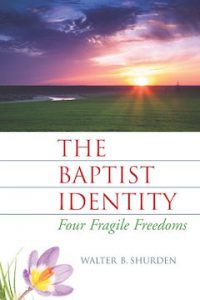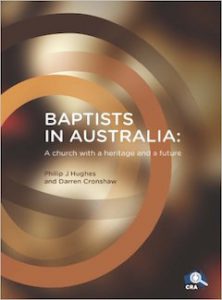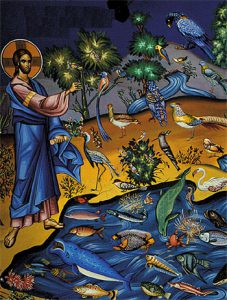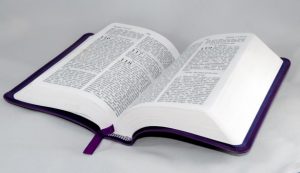Scroll down to find information on the following:
- Introduction
- What makes a Baptist Church Baptist?
- What do Baptists Believe?
- Statements of Faith used in this Church
- Beliefs about the Bible
- Beliefs about Praying with Icons
- Beliefs about Sexual Diversity and Morality
Introduction
Baptists do not recognise any single statement as faith as definitive and permanently authoritative, and therefore it is impossible to say what all Baptists believe on anything. The same is true of our church. Although there are many things that many people in our church would agree on, there is probably very little on which every single one of them would confidently agree. Therefore the statements that follow are not required beliefs for church members or even necessarily a consensus view.
Anyone who wants to slot our church neatly into a theological pigeonhole, somewhere on the spectrum from liberalism to fundamentalism, will probably be frustrated. Much of what passes for “liberalism” or “progressive Christianity” seems to us to be timid, vacuous, tired and devoid of the boldness and transformative power we have encountered in Jesus. And much of what passes for “fundamentalism” or “conservative evangelicalism” seems to us to be aggressive, hostile, judgemental and devoid of the joy, mercy and hospitality that so clearly characterised Jesus and his ministry. But attempts to occupy a “middle ground” so often seem to just end up being wishy-washy and pointless. So some of those who visit and worship with us are surprised by how orthodox and biblical we are in the ways we express our beliefs and address ourselves to God in prayer, and others are equally surprised by the dissenting and non-conformist positions we express on some controversial social issues, especially around the inclusion of those who have often been rejected and alienated by the church in the past. We just think we are following Jesus, as best we can.
What makes a Baptist Church Baptist?
You don’t need to know anything about what is distinctive of Baptists to be part of this church, but perhaps you are curious. If so, this section is for you.
In Australia almost all Baptist Churches belong to the Baptist Union of Australia and to the various state unions. In other parts of the world however, there are many different Baptist groupings, but most are affiliated with the Baptist World Alliance. There are some independent churches who are not affiliated with anyone but still call themselves Baptist. So what does it mean to be a Baptist? The following things are important distinguishing features of Baptist practice:
- There is a strong emphasis on personal faith and active commitment. Since their beginnings Baptists have said that you cannot be a Christian just by birth or affiliation. A person becomes a Christian on the basis of their own free decision to trust Jesus Christ and commit themselves to following him in company with his people. This is the reason that Baptists only baptise those who have made their own decision to follow Jesus and unite themselves to his Church.
- Baptist churches believe in the freedom of the local church, because we believe that God relates directly to each congregation and that therefore the best people to discern what God wants a particular congregation to do are the members of that congregation. This means that the highest human authority in the church is a meeting of the members of the congregation, gathered to prayerfully discern God’s leading. Neither the Baptist Union or any individual leader can overrule a decision of the church meeting. Very democratic!
- Baptists believe strongly in religious freedom and so argue that no religious group should be either persecuted or favoured by the state. We have always held that if the church becomes too closely related to or identified with the government, the church’s prophetic voice will be compromised.
- Baptists are part of the free church tradition which means that they do not impose any single standard of belief or pattern of worship on their members. Although many Baptist churches may have set patterns, it would be very un-baptist to say that it was the only Christian pattern. That’s why you can walk into two different Baptist churches and think they were from different planets!
What do Baptist’s Believe?
It is a long standing joke that if you take any three Baptists you will find four different opinions on anything! There is some truth in this. Because our free church tradition has argued strongly that we should not impose any one view on people, Baptist beliefs are extremely diverse and cannot be generalised.
For the most part though, it would be generally true that most Baptists hold their basic beliefs about God and God’s action in common with most mainstream Christian churches. The main issues on which Baptists have differed from other churches are about how to live out our faith, not to the content of the faith.
Throughout their history, Baptists have always held that the human mind can never comprehend the extent of God’s truth and have therefore said that no formal creed can be the last word on belief because the Holy Spirit is always leading people into new areas of understanding and action. On the other hand Baptists have probably produced more Confessions of Faith than any other group of Christians. The readiness with which they have been prepared to alter these Confessions of Faith is a strong indication that they never intended them to bind the conscience or the understanding of a believer. They were intended to be an understanding, not the definitive understanding of the Christian faith.
What is now called the Doctrinal Basis of the Baptist Union of Victoria was adopted by the Annual Assembly in 1888 to fulfil a legal requirement to safeguard the trusts of the Union. This statement, and the interpretative addition known as the Principles and Ideals of the Baptist Faith, were never intended to be the total understanding of Victorian Baptists of the whole counsel of God. This Church accepts them as part of a long tradition of expressions of Christian faith and does not require assent to them from anybody. If you would like to see them, there is a copy available here.
If you want to know more about the history, traditions and distinctives of the Baptist Churches, there are a number of places you can find help.
The following books are very helpful (click on the images to find them on Amazon):
 Radical Believers: The Baptist way of being the church,
Radical Believers: The Baptist way of being the church,
by Paul Beasley-Murray (Baptist Union of Great Britain, 1992)
This 128 page book was written by a leading British Baptist is easy to read and has lots of cartoons! It is an excellent introduction to the sorts of distinctive emphases that are usual among Baptists.
 The Baptist Identity: Four Fragile Freedoms
The Baptist Identity: Four Fragile Freedoms
by Walter B. Shurden, (Macon GA: Smyth & Helwys, 1993)
Another excellent and short introduction to the distinctives of Baptist thinking from a fine Baptist scholar from the United States of America.
 Baptists in Australia: A Church with a Heritage and a Future,
Baptists in Australia: A Church with a Heritage and a Future,
by Philip J. Hughes & Darren Cronshaw
(2013 Amazon Digital, or 1996 Canberra: Australian Government Publishing Service).
This 86 page book is part of a series profiling religious communities in Australia commissioned by the Bureau of Immigration, Multicultural and Population Research. It contains chapters on Baptist History, beliefs and practices, organisation and their profile in Australia.
Ask one of the pastors if you wish to borrow any of these books.
Statements of Faith used in this Church
The affirmation of faith that we use most often in our church is the Apostles’ Creed which we sing together most Sundays. Like most Baptists, we think creeds are for singing, not for signing! The Apostles’ Creed dates back at least to the 4th century and probably to the 2nd. The English text is as follows:
We believe in God, the Father almighty,
creator of heaven and earth.
We believe in Jesus Christ, God’s only Son, our Lord,
who was conceived by the Holy Spirit,
born of the Virgin Mary,
suffered under Pontius Pilate,
was crucified, died, and was buried;
he descended to the dead.
On the third day he rose again;
he ascended into heaven,
he is seated at the right hand of the Father,
and he will come to judge the living and the dead.
We believe in the Holy Spirit,
the holy catholic Church,
the communion of saints,
the forgiveness of sins,
the resurrection of the body,
and the life everlasting. Amen.
English translation © 1988 (ELLC)
 Keeping in mind the Baptist understanding that no statement of faith can ever be definitive, the following statement has been written and used in our church:
Keeping in mind the Baptist understanding that no statement of faith can ever be definitive, the following statement has been written and used in our church:
We believe in God, who made the world
and reaches out to it
with a love fierce and passionate, tender and kind.
We believe in Jesus the Christ
– God revealed in a human life.
He touched the untouchable,
pardoned the unforgivable,
and unmasked the powers that enslave us.
In fear and arrogance
we cast him, lifeless, into the grave,
and with him went our hopes of salvation.
Raised by God,
he is parting the sea of evil and despair
and leading us across
into the land of freedom and promise.
We believe in the Holy Spirit
– God’s mysterious presence with us –
whose breathing gives life;
whose fire purges and renews;
whose wisdom surprises, prompts and questions,
awakening courage, humour and hope.
We believe in ourselves;
made in the image of God
and growing to wholeness in Christ.
Gathered by the Spirit,
we have been baptised into a common life:
a life laid open to all;
overflowing with love and mercy;
richer than mind can measure,
but appearing foolish to the world.
And we trust that the foolishness of God
will prove wiser than the wisdom of the world,
and that the suffering of God will heal the earth
and fulfil our hopes of justice and peace.
Beliefs about the Bible
The following views are not necessarily representative of everyone in this church, but perhaps gives something of the flavour of our collected understandings.
 The Scriptures of the Hebrew Bible and the New Testament were written by people who were inspired by God. They record the perceptions of those inspired people about their experience of life and God’s influential action in it. The scriptures that have been accepted into the Bible have been given that authority in the Church because of the recognition of their sacramental power to teach truth, prompt transformation, evoke faith and inspire faithful action in the lives of their hearers.
The Scriptures of the Hebrew Bible and the New Testament were written by people who were inspired by God. They record the perceptions of those inspired people about their experience of life and God’s influential action in it. The scriptures that have been accepted into the Bible have been given that authority in the Church because of the recognition of their sacramental power to teach truth, prompt transformation, evoke faith and inspire faithful action in the lives of their hearers.
Reading the Scriptures is a sacramental action. The Bible is not in itself the Word of God. Jesus Christ is the Word of God, but his witness and his voice is made sacramentally present to us when the scriptures are read and heard. The Bible has no magical properties – it is absolutely powerless unless it is read and heard. But when it is read it has the power to become the voice of God leading us on in the journey into faith and life.
The Bible is the primary witness to God’s self-revelation in the world. It is not the primary revelation itself, but the primary witness to the creative and redemptive events in which God’s self has been disclosed to us. As the primary witness, it is the standard by which we interpret our perceptions of what God is doing in the world now and how God is calling us to respond. As such the Bible has supreme authority in the church and in our lives. As Bible-believing Christians, all that we do and say is evaluated in light of the truth we learn from the Bible and therefore must be able to be shown to be in continuity with that truth.
Beliefs about Praying with Icons
Icons are pictures of Christ and the saints that have been painted prayerfully in a unique traditional style for the purpose of assisting people in the prayerful contemplation of the mysteries of God. ![]()
The use of icons in prayer and worship has had a long but controversial history. The fear is that icons can become idols and people begin worshipping the pictures rather than the God whose presence the picture seeks to illuminate. This fear is understandable because icons are usually treated with great reverence and honour. People kneel before them, burn candles before them and sometimes even kiss them. However the devotion shown to them is not directed to the wood, stone or paint, but to the God whose presence in Christ or a saint they represent. This is really no different from the honour many people show to a photo of a loved one – and no one confuses the photo with the reality of the person. Praying while contemplating an icon is similar to writing a letter while looking at a photo of its intended recipient. No one is required to use icons in their prayer life, but some people find them helpful. In this church we have found that their presence in places of worship and prayer help to focus our attention on the God who we have gathered to encounter. If you would like to think a bit more about the relationship between icons and the biblical commandment against making images, there are a couple of relevant sermons that have been preached in our church on the topic. You can find them here and here.
Beliefs about Sexual Diversity and Morality
Okay, okay! We know that these days, most people looking at webpages about the beliefs of individual churches are just looking to see what they believe about sex in general, and homosexuality in particular, so if that’s you, we had better not disappoint you. Follow these links to find our Policies on issues of personal morality and on relationships and sexuality, and an essay from one of our pastors his own beliefs about homosexuality and same sex marriage and the biblical basis for those beliefs
